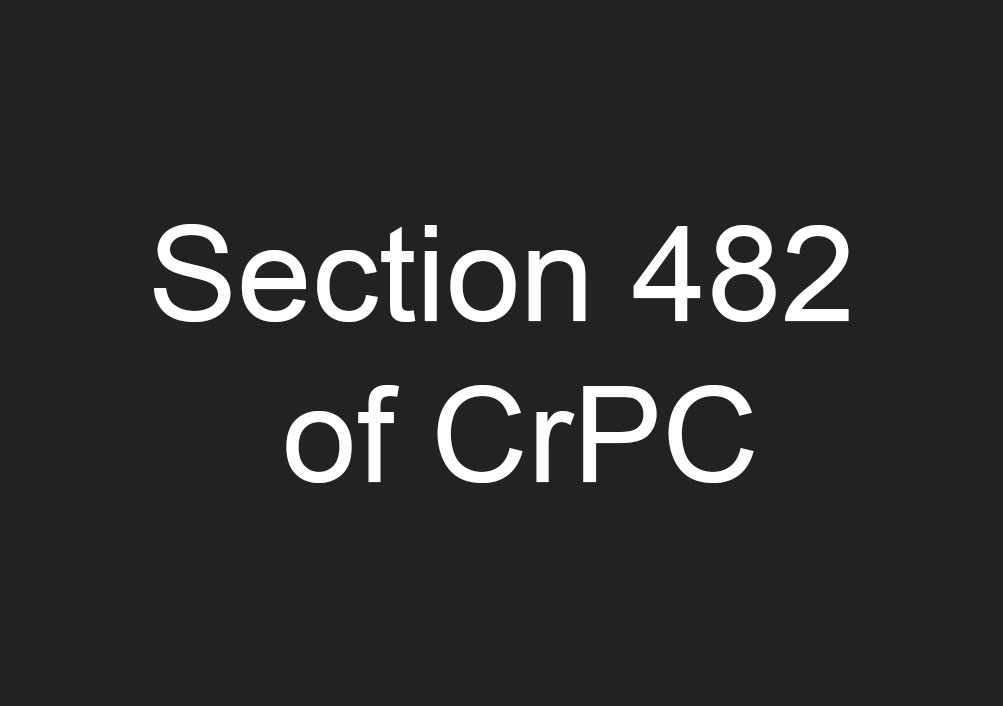While considering application u/s 482 CrPC at stage of framing of charge, High Court should not have entered into appreciation of evidence: SC

Read Judgement- Saranya v. Bharathi and another
Tulip Kanth
New Delhi, August 25, 2021: Setting aside the judgment of the Madras High Court whereby the entire criminal proceedings against the respondent were quashed, the Apex Court has observed that the High Court while considering the application under Section 482 Cr.P.C., entered into appreciation of the evidence and considered whether on the basis of the evidence the accused is likely to be convicted or not, which was not permissible at this stage of framing of charge.
The appeal in question had been filed by the complainant, wife of the deceased , pursuant to an FIR lodged against the respondent and one other person (first accused) for various offences under the Indian Penal Code pertaining to murder and cheating among others.
It was alleged that the complainant and her husband were introduced to one Vela alias Velayutham, who is the first accused in this case, by the respondent. They were told that Velayutham was employed at Guindy Employment Exchange and if they gave money, he could arrange Government employment for them.
The complainant further asserted that believing him they gave Rs. 4 lakhs to Velayutham who promised that the deceased would get the appointment order. It was also alleged that he had asked them to come to a flat where they were offered some powder claimed to be ‘Prasadam’ which was the cause for her husband’s death and her drowsiness.
Later, when the case was pending for committal before the Metropolitan Magistrate, Egmore, Chennai, the respondent approached the High Court praying for quashing the entire charge sheet and the High Court in exercise of powers under Section 482 Cr.P.C. quashed and set aside the entire charge sheet and the criminal proceedings against her. Hence, the complainant filed this appeal before the Top Court.
The appellant’s counsel mainly contended that despite the fact that there was ample material against the respondent, the High Court had quashed the entire criminal proceedings/charge sheet by entering into the merits of the allegations and appreciating the evidence on record, which at this stage and while considering the application under Section 482 Cr.P.C. was not permissible.
The Bench of Justice D.Y. Chandrachud and Justice M.R.Shah affirmed that quashing the chargesheet against the respondent was not justified. The High Court had evidently ignored what had emerged during the course of investigation.
The Top Court clarified that during the course of the investigation, the investigating officer had collected very important evidence in the form of call details between both accused persons which were in the proximity of the time of commission of offence and even thereafter.
Therefore, when the first accused had been chargesheeted for the offences under Sections 420, 302 r/w 109 IPC and when there was ample material to show at least a prima facie case against the respondent herein, the High Court had committed a grave error in quashing the chargesheet/entire criminal proceedings qua her in exercise of powers under Section 482 Cr.P.C.
“The High Court has entered into the appreciation of the evidence and considered whether on the basis of the evidence, the accused is likely to be convicted or not, which as such is not permissible at all at this stage while considering the application under Section 482 Cr.P.C. The High Court was not as such conducting the trial and/or was not exercising the jurisdiction as an appellate court against the order of conviction or acquittal,” noted the Division Bench.
The Apex Court referred to the judgment in Madhya Pradesh v. Deepak, (2019) 13 SCC 62, wherein it was observed that at the stage of framing of charges, the Court has to consider the material only with a view to find out if there is a ground for presuming that the accused had committed the offence.
Elucidating on this judgment, the Court said, “It is further observed and held that at this stage the High Court is not required to appreciate the evidence on record and consider the allegations on merits and to find out on the basis of the evidence recorded the accused chargesheeted or against whom the charge is framed is likely to be convicted or not.”
The Court also found that the respondent, who was serving in the Secretariat, was in touch with the deceased and the complainant as she used to go to the Xerox shop owned by the deceased and she introduced the first accused to the couple. The Bench noted that there was sufficient material on record raising strong suspicion against the respondent.
Thus, the Top Court has allowed the appeal and has asked the Magistrate to proceed further with the case, in accordance with law.
Sign up for our weekly newsletter to stay up to date on our product, events featured blog, special offer and all of the exciting things that take place here at Legitquest.




Add a Comment